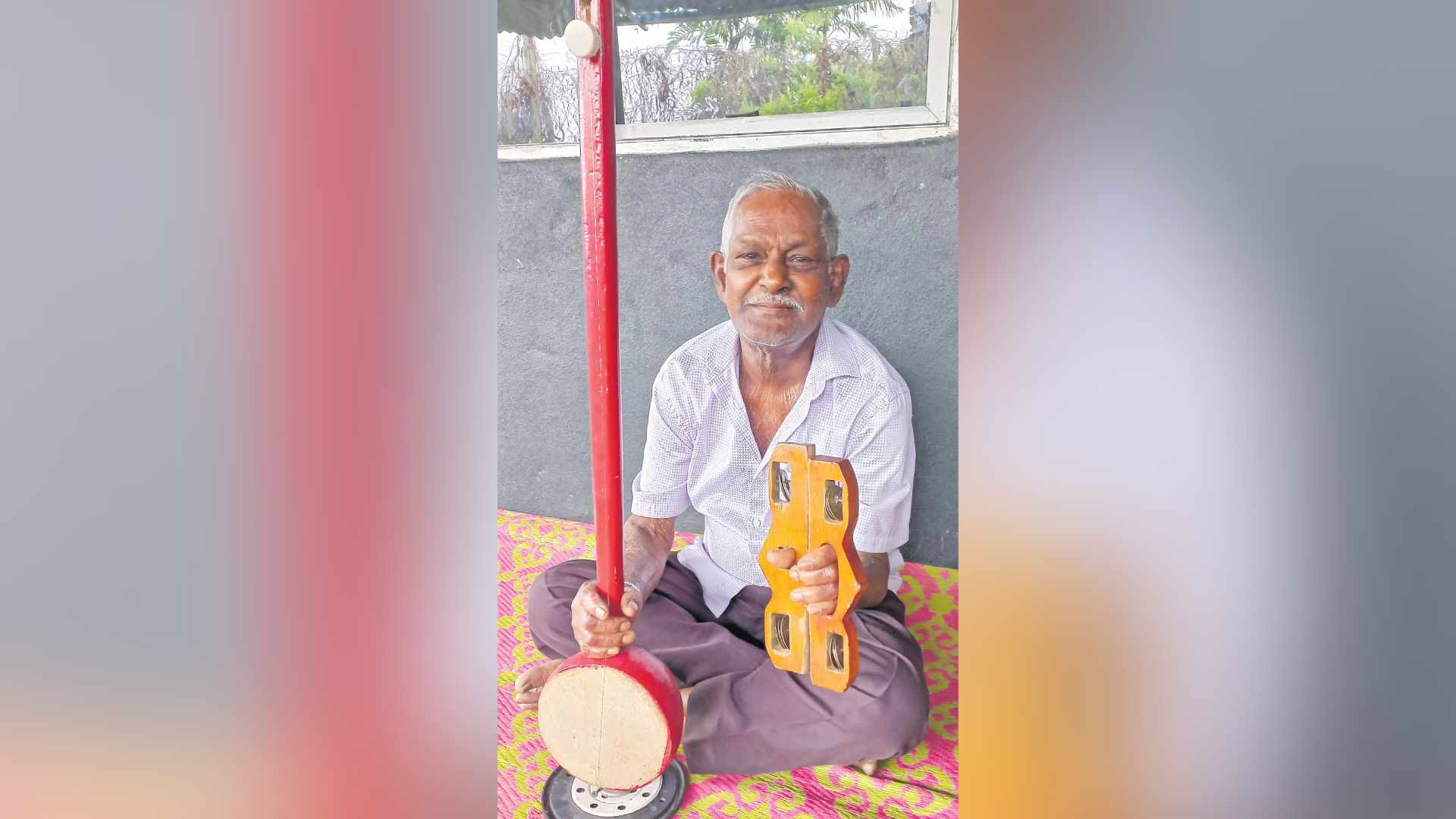Growing up in remote Daku in Labasa, Ram Bali developed a keen interest in Hindu folk songs or tambura bhajans, which are traditional Hindu bhajan sung using a musical instrument called a tambura.
This was the talent he nurtured from his father while accompanying him to singing events as a child. Apart from singing tambura bhajans, Bali became a very good dholak player at the age of 10.
While sharing the story of his musical journey, the 80-year-old resident of Sakoca in Tamavua says he still loves singing tambura bhajans.
“I was born in a remote area, Tagnikula, outside Labasa,” Bali says.
“My father Sukh Deo and mother Mangri were born in Fiji, but my grandparents were girmitiyas from India who came to Fiji to work on the sugarcane plantations.
“We were 10 brothers and sisters — five brothers and five sisters — and I was the second eldest. Of those 10, two brothers including me, and four sisters are still alive.
“In our time, the songs were quite different from what they sing today. Even Bollywood songs and music are different. We had old tunes with deeper meaning.
“All the songs sung locally were also sung the way our girmitiya used to sing. The second generation of girmitiya were basically singing whatever they’d learnt from their parents.”
Bali says during his days, the traditional Hindu songs were tambura bhajans, bidesiya, birha, lokgeet, sohar, allah, kahrauwa, pachra, qawali, and faag (chautaal, jhumar). “They used to sing in groups and nearly all the entertainment was done in the traditional way.
“My father Sukh Deo was a renowned singer during his time. He was very good at singing traditional Hindu songs such as tambura bhajans, allah, sohar, lokgeet, pachra and faag.
“He learnt all those from the girmitiya. Apart from singing, he was also a composer and a very good dholak player. He composed so many bhajans, one of which is very popular even today.
“The bhajan is based on girmit, and is always played on the radio during girmit celebrations. I have sung it and now other singers have copied and sung it too.”
Bali says he learnt all the traditional songs from his father.
“I learnt everything from my father. “I used to accompany him when he went to sing. Most of the time, I helped his team play traditional musical instruments.
“That’s how my interest developed, and my skills developed as well.
“My parents kept motivating me. We had a dholak at home, and I used to practise whenever I found time.
“After the age of 10, I became my father’s dholak player. He sang and I played the dholak with him.”
At the age of 15, Bali started singing tambura bhajans composed by his father.
“He kept guiding me, and as I grew I started singing other traditional songs as well. “I still have lots of interest in all our traditional songs, and whenever I attend family functions and my health permits, I sing.
“My songs are played on the radio from time to time. My girmit song, which I mentioned above, is also very popular.”
Bali says people always excel in areas in which they have interest. “That’s why it’s very important that we develop interest in our children when they are young,” he says.
“As they grow, their interest will also grow, and they’ll excel in that field.
“I am now teaching and guiding my young grandchildren and I am happy to see that they have a lot of interest in our traditional Hindu songs.
“My grandson Manav Sharma is just 10 years old and he is already singing kirtans.
“I urge parents to motivate their children and help them so that they can develop their talents in whatever field they have an interest in.”



